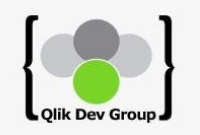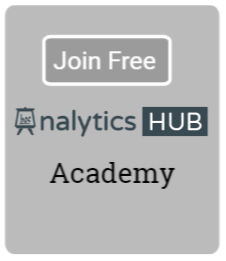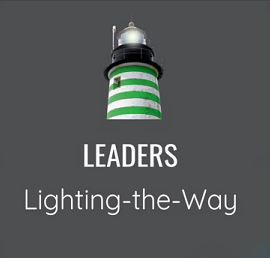 I am excited about our first Qlik Dev Group event of 2018 for a good reason — the role of a QlikView developer has morphed into somewhat challenging role of a Qlik Sense developer.
I am excited about our first Qlik Dev Group event of 2018 for a good reason — the role of a QlikView developer has morphed into somewhat challenging role of a Qlik Sense developer.
Many developers face daunting task to learn new skills — Javascript, HTML, CSS – that are essential to build Qlik Sense applications.
About a year ago, Karl published an article on his blog to address this same dilemma: Can QlikView developer be a Qlik Sense developer?
He wrote a series of blog posts to share his journey as he mastered web development skill to become a Qlik Sense developer.
That was brilliant as it not only made him accountable to stay the course but also inspired many of us to kick start our own quest to master these skills.
We are excited to have Karl come to Atlanta to speak about his own experience so I thought to get his perspective on some of the challenges we face as a QlikView developer.
Karl is a Qlik Luminary since 2014 so he needs no introduction. So, without a further ado, let’s have a conversation with Karl.
Hi Karl, it has been about a year since you began learning skills that are required for a Qlik Sense developer. For those of us who are keen to follow your footsteps, what advice you have for us?
Hi Shilpan. First, I would like to congratulate you for being a Qlik Luminary in 2018. I’ve been a fan of learnqlikview.com for a long time.
As far as becoming a Qlik Sense developer, my first recommendation would be to keep your learning path as simple as possible. The more you think you have to learn, the more discouraging the process becomes. For example, you can build an extension using a JavaScript framework called AngularJS, but it isn’t necessary.
Secondly, practice some form of web development topic at least once a week. Whether it be one section of an online HTML class, a chapter in a CSS book, or writing one line of code for a mash-up, it’s important to keep these new skills fresh in your mind.
And lastly, make it known to a customer or a business user that you’re learning how to make widgets, mash-ups and extensions. Don’t be afraid to let yourself be motivated by real world requirements.
I see frustration among QlikView developers who think that Qlik Sense lacks functionality and visualizations that QlikView offers. Can Qlik Sense APIs allow developers to have that freedom that they once enjoyed with QlikView. If so, what is the best way to master these APIs?
I was also frustrated working with Qlik Sense and not being able to do many things that were easy to do in QlikView. Additionally, I understand those that think that learning web development skills is too high of a price to pay in order to make up for Qlik Sense’s missing features.
However, I didn’t start learning web development skills to make Qlik Sense into QlikView. My goal was to create visualizations and analysis in Qlik Sense that aren’t even possible in QlikView. For example, my first visualization, a cycle plot, isn’t an option in QlikView.
The use of Qlik Sense’s APIs will give you more freedom than QlikView to create whatever visualization you imagine. Currently, the best way to learn more about Qlik APIs is to look over the Qlik documentation, watch a few videos from Speros Kokenes, and get an “open-source” education from Qlik Branch.
I consider you a Qlik visualization expert. What are your tips for designing data driven applications that tell effective story? Also, are there idiosyncrasies involved for a QlikView designer to transition his or her skills to become an effective Qlik Sense designer?
Be empathic. Put yourself in the user’s shoes and have high standards. You have to be able sell your design to the user, and if you cannot convince yourself that it’s a good design then you aren’t going to convince the user either.
Also, a Qlik Sense designer should keep the most popular Qlik Branch extensions on-hand and allow for plenty of time to play around with the layout of the objects.
What advice you have for a typical Qlik developer — who likely will have to wear hats as QlikView and Qlik Sense developer — as most organizations require expertise with both tools?
I believe in these cases, a Qlik developer might be tempted to stay with what is comfortable and delegate Qlik Sense to others as some toy to keep business analysts entertained. I wouldn’t underestimate Qlik Sense’s potential or the abilities of a Qlik developer to learn the skills necessary to help Qlik Sense turn its potential into a reality.
Claudia and I are excited to have you visit Atlanta to speak at our Qlik Dev Group event on March 15th. I know that you have wealth of knowledge to share. Why do you think every serious Qlik developer should attend this meetup?
I think this meetup is a great opportunity to talk about what the future holds for us Qlik developers. It’s a great moment to discuss the opportunities we have to learn new skills that complement our strengths. Is learning web development to create custom visualizations the right path? Is learning advanced analytics by leveraging Qlik’s integration with R or Python a better fit? Or, can we define a path to reach super hero status and learn both skills?
In the case of learning web development skills, we’ll also present the basic concepts on how to get started and leave everyone with plenty of homework for the rest of the year.
 You definitely don’t want to miss this exciting Qlik Dev Group event to have conversation with Karl on March 15th.
You definitely don’t want to miss this exciting Qlik Dev Group event to have conversation with Karl on March 15th.
Please RSVP here.
Don’t forget to visit Karl’s blog




